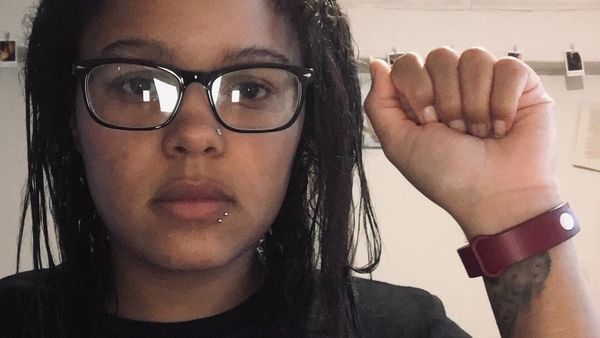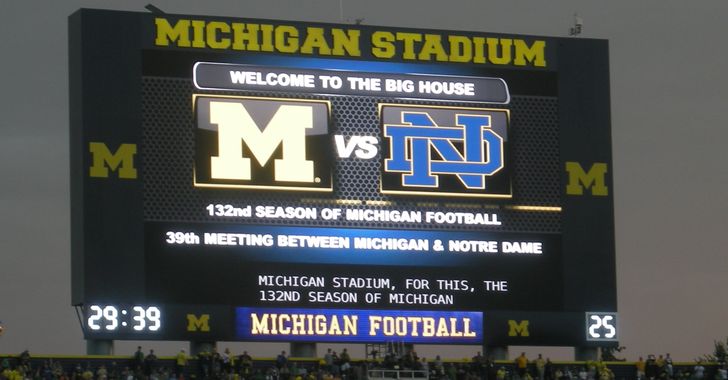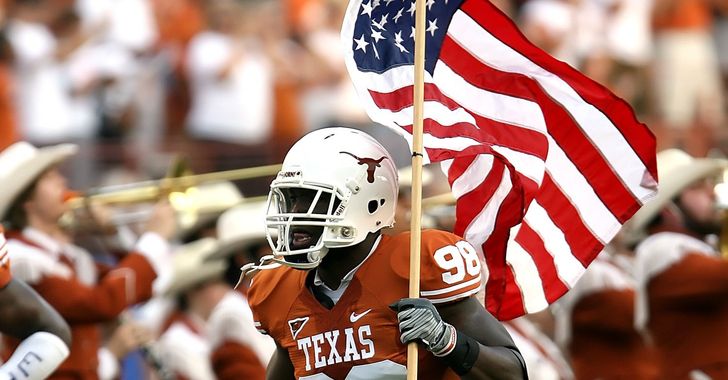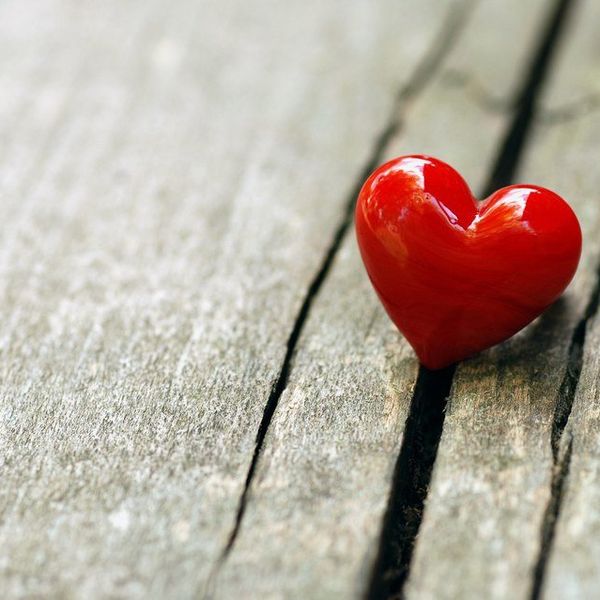These past few weeks have been some of the toughest in my lifetime. Something needs to be done, people are still losing their lives because of the color of their skin. In order for change, I can't be quiet anymore. This isn't political, and this isn't just about how I'm feeling at this moment. We, the Black people in this country, need our voices to be heard and our messages finally understood, because this time needs to be different.
My name is Logan Roberts, I live in Syracuse, New York, and I play soccer professionally for Utica City FC in the MASL. I've been blessed in so many ways that I'm not going to sit here talking about how hard my life is been, because that wouldn't be accurate; I grew up suburban Upstate New York, with two loving parents and everything I needed. Everyone that knows me says that I am very laid back and quiet, one of my teammates calls me 'King Chill' because nothing usually gets to me. In the wake of the deaths of George Floyd, Rayshard Brooks, and the events unfolding throughout the country, that isn't the case. I'm emotional, angry, and hurt because the color of our skin still matters.
This isn't a post for me to dive into the countless amount that of times I've been told how good it is that I don't "talk like a Black person," or how last year a mutual friend was telling me how I should understand that Black people were "mean" but I'm "not like the rest of them." It's not about how I was nicknamed "Black" for my entire freshman year of college because there were two Logans on our soccer team, leading me to consider transferring. It's about the sentiment of those instances feeding stereotypes, and those stereotypes still being an undertone in the deaths of too many Black people in this country today. The idea that we are lesser or dangerous because of the color of our skin is why so many of us are so tired, angry, and in the streets demanding equality.
For those who don't know how to relate those protesting around the country, what I can offer is my experiences in order to provide a different context in order to relate to how we are feeling.
I offer perhaps a different perspective for people who aren't sure how to empathize with issues they've never had to deal with or don't know what to do next. The things I've been through won't headline a movie, but may be able to portray shades of what it feels like to be a Black person living in this country. I've been quiet for too long, which is part of the problem, and to be part of the solution I need to share the things I've been hesitant to. While I don't know all of the answers, I know that we need the help of the majority, to fight for the minority in order to make any progress against systemic racism. I know that even though you may never truly understand what Black people in this country have been through, that you can better understand the experiences that we've had by actively listening. I know that I need to use my voice, for those that don't have a voice anymore.
I pride myself on being extremely rational, someone who is usually able to see both sides of every story. In this case, I grew up both sides of this situation, my father is a Black former police officer, and my mother is white. Growing up in Upstate New York I was always one of the only Black kids in all my classes, on all my soccer teams, and among all of my friends. I always tried to make it a point to tell everyone I was biracial (or 'mulatto' as everyone loved to correct me) because I felt that was important and unique. I felt as though I represented a really interesting part of this country's history, and I needed to say it in order to feel closer to all of the other kids around me. I used to spike my hair and wear Hollister shirts to show everyone - 'see I'm the same as you.' Whether I realized it or not, I was always 'code-switching' — trying to act or speak differently when I was in school or around my friends to prove to everyone that I was just like they were. I hated the days when slavery was the topic because all the white kids in class would glance at me, but I thought if I didn't react then I wouldn't stick out. Throughout High School, I stayed quiet when some of my friends would throw around race jokes, with the punchlines usually implying how Black people were dumb. Though they'd say '"no offense," I still said nothing because I didn't want to stand out that much more than I already did. It took me too long to understand what race really was; it wasn't how I dressed or what I told people, race is the color of your skin.
I'm Black, and I always will be extremely proud of the color of my skin. But whether I knew it or not, I woke up every morning viewed as a second class citizen by many. To this day I'll walk into places and see the way people are looking at me, knowing they are making judgments about me because I'm Black. I can feel the disdain in certain people's eyes as they view the color of my skin, it's never been very subtle.
My father was a New York State Trooper from 1982-2012, and his father was a member of the Tuskegee Airmen who fought in World War II, so I grew up with the utmost respect for those in service and in law enforcement. The amount of racism my father dealt with on the job is another story, but by listening to him I always felt like I had some very interesting insights on what occurs in these types of incidents. I've been around a lot of police officers since I was born, and still know many to this day. I had been pulled over more times than I care to admit, and most of the time it was a respectful encounter that I felt prepared for because of what my father told me to do and say.
In the fall of 2016, I was leaving Binghamton University after a long day of preseason practice, when I was pulled over for speeding as I turned off of campus. The officer came to my window, shown his light in my face, and immediately called for his partner to come to the other side of my car. I handed him my license, and he preceded to let it fall onto the ground. I then reached into my glove compartment to get my insurance card, his partner on the other side of the car quickly reached for his gun. I froze, before quickly saying "I'm just getting my insurance card."
Nervously, I grabbed my card, handed it to him, and sat with my hands in my lap. They both kept their hands on their guns, and flashlights in my face for the rest of the encounter before saying, "we had to check out someone like you coming off-campus like that" and going back to their car. In that moment, for the first time in my life, I realized that it could have been me.
I felt helpless, in the truest sense of the word. I was completely vulnerable to the fact that a person in power had the capability to do what he felt was necessary, and there was nothing I could do about it. Maybe it was never his intention to pull out his gun, or maybe it was and if I moved any quicker he would have drawn it and pulled the trigger. I'll never know, but the helplessness I felt in that moment sits with me today because as I know that's what countless other men and women who look like me felt in the moments before they lost their lives. I felt helpless because it could have been me, and it's really happening to people who look like me.
I sat in my car for a moment not knowing what to do after they left, until I texted my mom and told her what happened. And for the first time since I was born, it hit her that it could have been me. For my entire life, my mom didn't look at me and see a young Black kid, she just saw her son. She used to disagree when I would refer to myself as Black, by saying "you're bi-racial, look at your mom!" Knowing how the world saw me, my response was always, "but look at my dad!" After that incident, she understood how other people looked at me, and she didn't know what to do. My father, the state trooper for 30 years, called me the next day and very emotionally said, "I'm sorry, but it is just hard to be a Black man in this country today."
A few days later my mom saw a segment on the news titled "What To Do: If You're Black And Get Pulled Over By The Police," and sent it to me. After a co-worker wanted to send it to her children, but my mom tried to explain to her that it wasn't the same for her kids because they were white. My parents realized they were helpless too, they did everything in their power to give my brother and I the best life possible. They raised us to have great respect for everyone, especially law enforcement, and in that moment none of it could have mattered. Why would their child, whose never been in a fight in his life, ever be a threat? They realized that the answer was related to the color of my skin, and it scared them.
One year later in the fall of 2017, I was going too fast in one of the 'nicer' areas of Syracuse on a late night. I saw the flashing lights behind me so I quickly turned into the neighborhood of a friend's house I was going to, where I was pulled over. The officer walked up to my window, looked in, and radioed for other officers to come. He asked me what I was doing "out this way", I responded by saying I was going to a friend's house. After taking my license, he walked backed to his car and waited 15 minutes for the two other cars to show up. He walked back up with the two other officers, flashlights in my face on both sides of the car asking me what I was doing here, and if there was anything illegal in the car because of how I was driving. I said I was just going to my friend's house, and no there was nothing illegal in the car. They asked again if I was sure that's why I was here and that I didn't have anything, and I said I was sure. After another 20 minutes of talking at their cars, they came back and told me the only reason they were letting me go was that I gave them the correct name of the house I was going to. Before leaving, he finished by saying, "someone like you driving like that in this kind of neighborhood looked really sketchy" and "you should just go home."
I texted my friend, told them I wasn't coming, and immediately drove home. I never told anyone what happened, I just couldn't explain how I was embarrassed, sad, and above all, hurt.
I was hurt because it happened again, and it couldn't have been a coincidence that each officer decided to call for others after looking at me, and told me I looked sketchy in my car. Once again I didn't know what to do, the helplessness I felt before was still there and it was accompanied by a deeper pain because I knew I was perceived differently because I was Black.
Were all or any of the police officers involved, overt racists? Of course not, because these aren't indictments on individual officers, but on a system that has operated on implicit biases for years. It's very important to accept that these events don't have to involve racist people for them to be racially motivated. Just because you aren't racist doesn't mean you don't use biases, or reinforce racial stereotypes that carry dangerous consequences. Myself and people across the country are upset that others still make inferences about who we are, and what we might do based on the color of our skin. We are hurt that those inferences are made as a result of years of stereotypes that seem like nothing but result in the underlying feelings that have caused too many of us to lose our lives in this country.
I know I should stop speeding, and each time I deserved to be pulled over. What I didn't deserve was to leave each encounter knowing I was viewed as a threat or in the wrong neighborhood because of the way that I look.
I don't deserve to be scared every time I drive by a police officer now, reflecting back on feelings from before. If you think these are overreactions, then you really don't know what it feels like to look in the mirror and try to understand why other people see you as lesser or dangerous. My own experiences were mild ones that caused me to feel helpless, other's similar experiences have caused them to lose their lives.
If you can't relate to my experiences, maybe you can relate to fears that my parents still have to this day. If there is anyone in your life; a relative, a friend, or even a mutual friend, who is judged by the color of their skin and could fall to the same fate as George Floyd, can you relate to that feeling of pain? (If you don't know one Black person, then please start there). We think that these things don't happen in our communities, but have for years. If I was the one on the ground, I hope that those who care about me would fight for my justice just as hard as those in Minneapolis have been these past few weeks. If you care about someone that looks like me, regardless of how nice and respectful you think they are, just know that it could happen to them too. The knowledge of that should be enough to motivate us to take action. It's on us not only to get justice for those that have lost their lives but to prevent more deaths due to any sort of racial biases. This isn't just a fight against the officer that took George Floyd's life, it's against the system that has allowed this to happen for hundreds of years.
My life matters. It matters to my parents and those who care about me, but it doesn't matter any more than George Floyd's or Breonna Taylor's. Their ability to live should mean just as much as yours, and not any less than all people in this country regardless of skin color. Saying that our lives matter means that you agree Black peoples' lives mean as much as yours, and you understand that hasn't been the case for generations. Saying that our lives matter doesn't mean that you're anti-police by any means, it just means that we deserve equal treatment and justice in this country. Where we are from and the color of our skin shouldn't put us at any disadvantage, we just want to live with the same freedoms that you do. We just want to know our lives are meaningful in this country, and that others are helping us fight these systemic injustices to ensure that's the case.
This isn't an overnight issue, where people just saw the video of George Floyd's death and immediately decided to take the streets.
What we've seen on the news and social media isn't a fair representation of the decades of systemic injustice that have led to this moment. This has been building for generations: from The Tulsa Black Wall Street Massacre in (1921), to Emmett Till (1955), Rodney King (1991), Sean Bell (2006), Eric Garner (2014), now George Floyd, with too many more names that have been lost in between. As decades have passed, we have waited for slow wheels of justice, for someone to be held responsible for an egregious act against a person of different skin color. Time after time the court often rules that those who are beaten or killed, were done so in a way that is justifiable by law in this country. The system rules that the police officers who beat Rodney King did so in self-defense, that officers rightly fired 50 shots into unarmed Sean Bell's car on the morning of his wedding, and the man who choked Eric Garner did not deserve to be charged with any wrong-doing.
This helplessness in endlessly waiting for justice to be served has slowly turned into rage, and rage is the fuel for what we are seeing today. Rage that also derived from deeper systemic issues like one hundred years of Jim Crow Laws created to oppress Black rights, the disproportionate rates at which Black men were drafted and placed on the front lines of the Vietnam War, the mass incarceration and excessive punishment of Black people compared others who commit similar crimes, and the lack of resources invested into communities that has lead to the higher rates at which Black people are currently dying from COVID-19. Too many of us have died in vain, without any justice, and it needs to stop.
After decades of calls for help falling upon deaf ears, can you understand why we feel this way?
By no means am I advocating for the looting of stores, or condoning violence towards anyone, because it was an unfortunate thing to see happen in this country. In the same breath, we cannot let those actions obscure the view from the larger message trying to be sent by those protesting. The few violent outbreaks didn't occur because people want to cause destruction and harm to their cities, those were emotional reactions to irrational situations that have been building for 400 years. The people in the streets protesting aren't thugs, we're people that have been protesting for hundreds of years that Black people deserve to be treated as equals, and all these years later we're still lacking that equality. We're people that are outraged that race is still affecting the lives of so many in this country, and know that ourselves, children, or siblings could be next. We're angry after years of crying out for help, and just want justice against those who oppress us because our skin is darker. At a minimum, we deserve that justice.
Say that in every game that I play in, the referees won't call any fouls committed on me. At the same time, they call every single thing against me, whether it is a foul or not. When I look at the ref and ask why they act like they can't hear me. If this continues, I'm going to get frustrated. Now if this happens in every game, month after month, year after year; I'm not going to be able to control my frustrations anymore, and I'm going to explode. I'm normally not an angry person but I'm going to get desperate and kick someone and start yelling at the referee, just to see if they hear what I have to say. That's the moment we are at in this country, people just can't take it anymore. We don't know what we need to do in order to be deserving of equal treatment. In your head, maybe you still can't see yourself ever participating in protests happening around the country or rationalize the destruction of any property. But if your loved one was treated as lesser, harmed, or even killed because of the way they looked, can you imagine the despair that you would feel? Black people want to stop feeling that despair, we just want this to end.
I need to speak up because I don't want to be attending protests with my children, to fight for their safety as Black people. The future we want to create shouldn't be colorless, where your children look at mine and say they don't see the color of their skin. It's should be a future where everyone sees that they are Black, and nothing negative or dangerous is projected upon them because of that. They shouldn't ever feel helpless or hurt because the shade of their skin is darker. They shouldn't be like their father who was resigned to being quiet to those around him saying dangerous and hurtful things, in order to better fit in. I want them to live in a world where every day they feel safe and know that their life matters to everyone.
This won't happen overnight, but meaningful change has to occur in order for that future to become reality.
The first steps toward progress can be taken by everyone; in their communities, right now. We don't need you to feel sorry for us, we need you to empathize with us. We need you to educate yourself on these issues by reading books about discrimination, listening to people speak about activism, and watching documentaries about injustice. We need you to recognize your privilege and use it to uplift those like me who are born without it. Be there for us. Let us know that you see us for who we really are, and hear what we are saying. Let us know that you're here for us. Let us know you're ready to be an ally to us because we need all of your help in this fight against injustice.
If you can take anything from my experiences, it's to hear the experiences of as many people as you can, because the answers lie in all of us. We all need to be heard because in order for this time to be different, we can't continue to fight this alone. The end of systemic injustice will start when everyone stops being quiet.









 Photo by
Photo by 









































